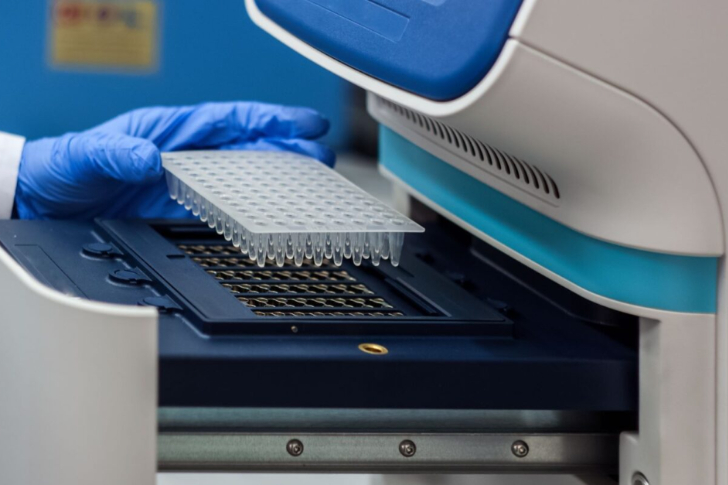PCR Machine Prices in the USA: A Comprehensive Overview
Polymerase Chain Reaction (PCR) machines have revolutionized the field of molecular biology since their inception in the 1980s. They are indispensable tools for DNA amplification, enabling researchers and clinicians to study genetic material with remarkable precision.

Given the growing demand for genetic testing, medical diagnostics, and research, the market for PCR machines in the USA has expanded significantly. This article explores the current landscape of PCR machine prices in the USA, considering various factors that influence costs and providing insights into what buyers can expect.
Types of PCR Machines
Before delving into the prices, it is essential to understand the different types of PCR machines available. There are three main categories:
- Standard PCR Machines: These are conventional thermal cyclers used primarily for basic DNA amplification.
- Real-Time PCR Machines (qPCR): These machines not only amplify DNA but also quantify it in real-time, making them ideal for diagnostics and research requiring precise quantification.
- Digital PCR Machines (dPCR): The latest advancement in PCR technology, dPCR offers absolute quantification of nucleic acids without the need for standard curves, providing high sensitivity and accuracy.
Each type serves different purposes and thus has different price ranges.
Factors Influencing PCR Machine Prices
Several factors influence the cost of PCR machines:
- Technology and Features: Advanced features such as real-time quantification, gradient functionality, and high-throughput capabilities significantly increase the price.
- Brand and Quality: Renowned brands with a reputation for reliability and accuracy, such as Thermo Fisher Scientific, Bio-Rad, and Applied Biosystems, tend to command higher prices.
- Capacity: Machines with higher sample throughput (e.g., 96-well or 384-well plates) are more expensive.
- After-Sales Support: Comprehensive warranties, customer support, and service agreements add to the overall cost.
- Market Demand and Supply: Prices can fluctuate based on the demand-supply dynamics in the market, especially during events like the COVID-19 pandemic.
Price Ranges of PCR Machines in the USA
Standard PCR Machines
Standard PCR machines, also known as thermal cyclers, are typically the most affordable option. They range from basic models suitable for small labs to more sophisticated versions with advanced features. Here’s a breakdown:
- Entry-Level Models: These machines are ideal for educational purposes or small-scale labs. Prices start at around $2,000 and can go up to $6,000. Examples include the Bio-Rad T100 Thermal Cycler and the Applied Biosystems MiniAmp Plus.
- Mid-Range Models: Offering more features such as gradient cycling and higher capacity, these machines range from $6,000 to $15,000. Notable examples are the Bio-Rad C1000 Touch Thermal Cycler and the Eppendorf Mastercycler X50.
- High-End Models: For large-scale labs or specialized applications, high-end models with extensive features can cost between $15,000 and $30,000. The Bio-Rad CFX96 Touch and the Thermo Fisher Veriti Thermal Cycler are prominent examples.
Real-Time PCR Machines (qPCR)
Real-time PCR machines are more expensive due to their ability to quantify DNA in real-time, which is crucial for applications like gene expression analysis and clinical diagnostics.
- Entry-Level Models: Basic real-time PCR machines start at around $15,000 and can go up to $30,000. Examples include the Applied Biosystems QuantStudio 1 and the Bio-Rad CFX Connect.
- Mid-Range Models: These offer enhanced features such as multiplexing capabilities and advanced software integration, priced between $30,000 and $60,000. Examples include the QuantStudio 3 and 5 from Applied Biosystems and the Bio-Rad CFX96.
- High-End Models: For top-tier labs requiring high-throughput and precise quantification, prices can range from $60,000 to over $100,000. The Thermo Fisher QuantStudio 12K Flex and the Bio-Rad CFX384 Touch are prime examples.
Digital PCR Machines (dPCR)
Digital PCR is the most advanced and expensive type, providing absolute quantification and high sensitivity, ideal for applications like rare mutation detection and copy number variation analysis.
- Entry-Level Models: Basic digital PCR machines can cost between $50,000 and $70,000. Examples include the Bio-Rad QX200 Droplet Digital PCR System.
- High-End Models: These machines, designed for large-scale and highly specialized research, can cost upwards of $100,000. The Thermo Fisher QuantStudio Absolute Q Digital PCR System is a notable example.
Additional Costs to Consider
When purchasing a PCR machine, it is essential to consider additional costs beyond the initial purchase price:
- Consumables: PCR machines require various consumables, such as reagents, plasticware (tubes, plates), and enzymes, which can add up significantly over time.
- Maintenance and Calibration: Regular maintenance and calibration are crucial for optimal performance and accuracy, often involving annual service contracts.
- Software and Upgrades: Advanced software for data analysis and machine upgrades can also contribute to the overall cost.
- Training and Support: Training for lab personnel and ongoing technical support might be necessary, especially for complex machines.
Financing and Leasing Options
Given the high costs associated with PCR machines, many suppliers offer financing and leasing options to make the purchase more manageable. Leasing can be a viable option for labs with budget constraints, allowing them to use advanced equipment without the hefty upfront costs. Additionally, some suppliers offer rent-to-own schemes, which can be beneficial for growing labs.
Conclusion
The prices of PCR machines in the USA vary widely based on the type, features, brand, and additional services required. Standard PCR machines offer a more budget-friendly option for basic applications, while real-time and digital PCR machines cater to more advanced and specialized needs, reflecting in their higher costs.
For prospective buyers, it is crucial to evaluate their specific requirements, consider the total cost of ownership, and explore financing options to make an informed decision. As technology continues to advance and the demand for genetic analysis grows, the market for PCR machines is expected to evolve, potentially leading to more cost-effective and versatile options in the future.







Recent Comments